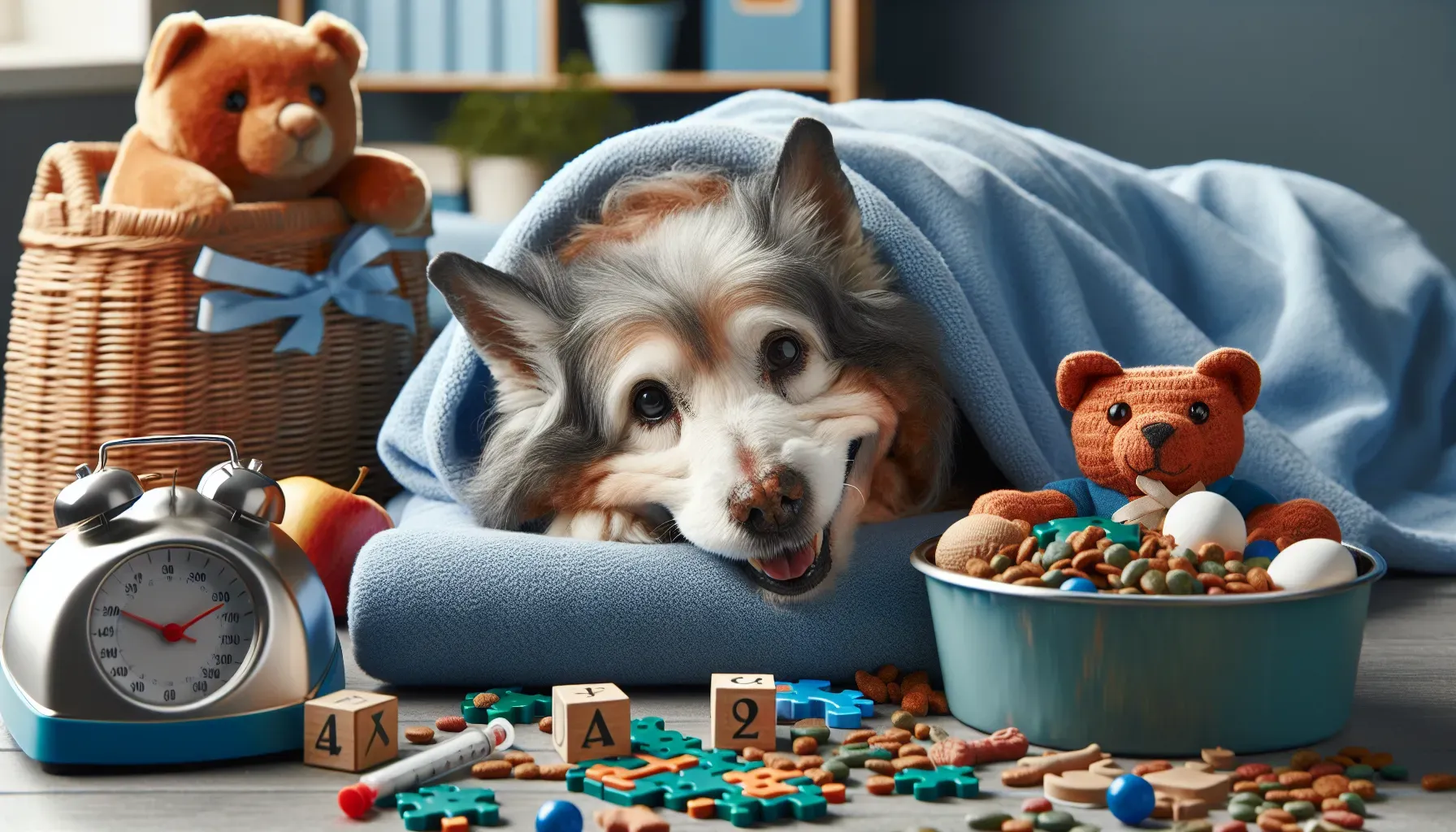
Understanding Age-Related Changes in Pets
As pet parents, witnessing our beloved companions age can inspire a mix of emotions, from nostalgia for their youthful antics to concern about their changing needs. Much like humans, pets also experience age-related changes that require our attention and care. In this comprehensive guide, we will delve into the essential aspects of senior pet care, offering invaluable tips to ensure our aging fur babies lead happy, comfortable, and fulfilling lives.
As pets enter their golden years, they often display noticeable changes in behavior, appearance, and overall health. To provide optimum care for senior pets, it's crucial for pet parents to recognize these age-related changes and adapt their care routines accordingly. Common signs of aging in pets include:
Common Signs of Aging in Pets
- Decreased Activity: Seniors may become less active and prefer relaxation over vigorous play.
- Weight Changes: Fluctuations in weight could indicate a change in metabolism or underlying health issues.
- Dental Problems: Dental issues are prevalent in aging pets and can significantly impact their overall well-being.
- Vision and Hearing Loss: Seniors may experience a decline in vision and hearing abilities, requiring adjustments in their environment.
Proper nutrition plays a pivotal role in the health and longevity of senior pets. As pets age, their dietary requirements evolve, necessitating adjustments in their food intake. Here are key nutritional considerations for senior pets:
Related Article: AI-Powered Veterinary Assistance: A Retrospective Look at its Transformative Impact and Future Potential
Nutritional Needs for Senior Pets
- Specialized Senior Diets: Many pet food brands offer specialized diets tailored to the unique nutritional needs of senior pets, including lower calorie content and joint support supplements.
Importance of Specialized Diets
- Regular Veterinary Consultations: Regular check-ups with a veterinarian can help determine any specific dietary requirements based on the individual health status of senior pets.
- Hydration: Senior pets may be prone to dehydration, making it essential to ensure that they have easy access to clean water at all times.
Related Article: The Promise of Remote Veterinary Care: Redefining Access to Healthcare for Pets Worldwide
Exercise and Mental Stimulation for Seniors
While senior pets may not have the same level of energy as their younger counterparts, regular exercise and mental stimulation remain crucial for their overall well-being:
- Gentle Physical Activities: Engage senior pets in low-impact exercises such as short walks or gentle play sessions to maintain their mobility and joint health.
- Mental Enrichment: Interactive toys and puzzle feeders can provide mental stimulation for senior pets, helping to prevent cognitive decline.
Gentle Activities for Senior Pets
As pets age, they become more susceptible to various chronic conditions that require careful management:
- Arthritis Management: Arthritis is common in senior pets, and providing comfortable bedding and joint supplements can alleviate discomfort.
Related Article: Health Tourism and Veterinary Care: The Emergence of International Standards in Animal Wellness
Managing Chronic Conditions in Aging Pets
- Dental Care: Dental issues can exacerbate existing health conditions in senior pets; regular dental check-ups and dental-friendly diets are vital for their well-being.
Caring for Arthritis and Dental Health
Tailoring the living environment to accommodate the changing needs of senior pets is crucial for their comfort and happiness:
- Bedding and Rest Areas: Providing comfortable, orthopedic bedding can support aging joints and promote quality rest.
- Temperature Regulation: Maintaining an optimal temperature within the living space can help alleviate any discomfort caused by temperature sensitivity in older pets.
Creating a Comfortable Home for Senior Pets
In conclusion, embracing the journey of pet aging gracefully involves understanding and addressing the evolving needs of our senior companions. By recognizing age-related changes, providing appropriate nutrition, engaging in gentle exercise and mental stimulation, managing chronic conditions, and creating a comfortable environment, pet parents can ensure that their aging fur babies lead fulfilling lives filled with comfort and love.
Frequently Asked Questions
Common signs of aging in pets include decreased activity levels, weight fluctuations, dental problems, and potential vision and hearing loss. Recognizing these changes is crucial for pet parents to adapt care routines and ensure their senior pets receive the appropriate support and attention they need for a comfortable life.
Improving your senior pet's nutrition involves providing specialized diets tailored to their unique needs, which may include lower calorie content and joint support supplements. Regular veterinary consultations are essential to determine specific dietary requirements, and ensuring easy access to clean water helps prevent dehydration in aging pets.
To create a comfortable environment for your senior pet, provide orthopedic bedding that supports aging joints and promotes quality rest. Additionally, maintain an optimal temperature in their living space to alleviate discomfort caused by temperature sensitivity. These adjustments can significantly enhance their overall well-being and happiness.






